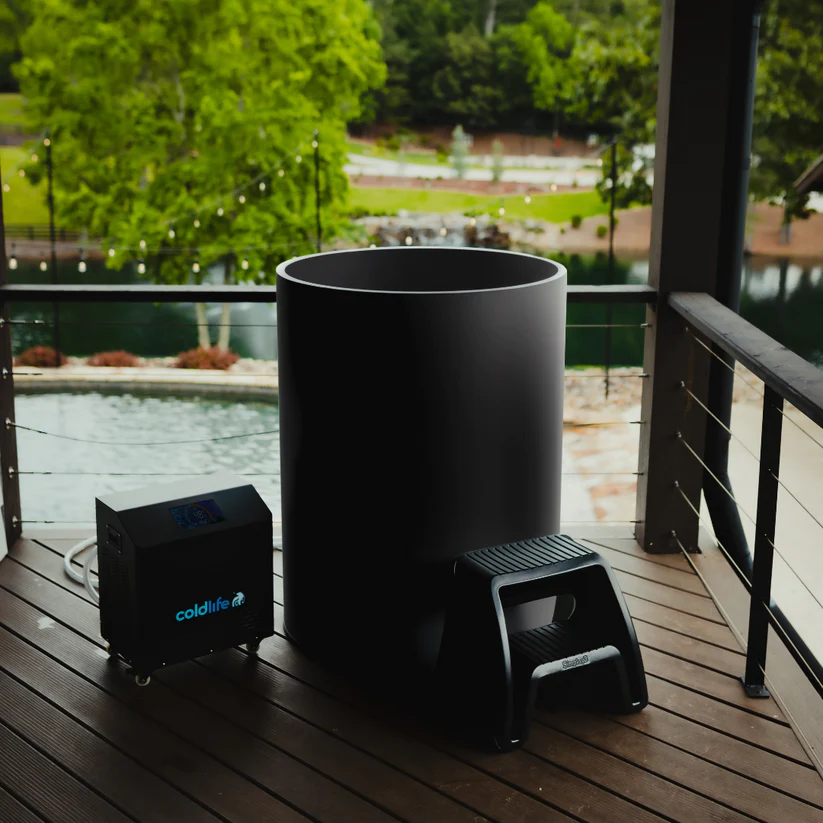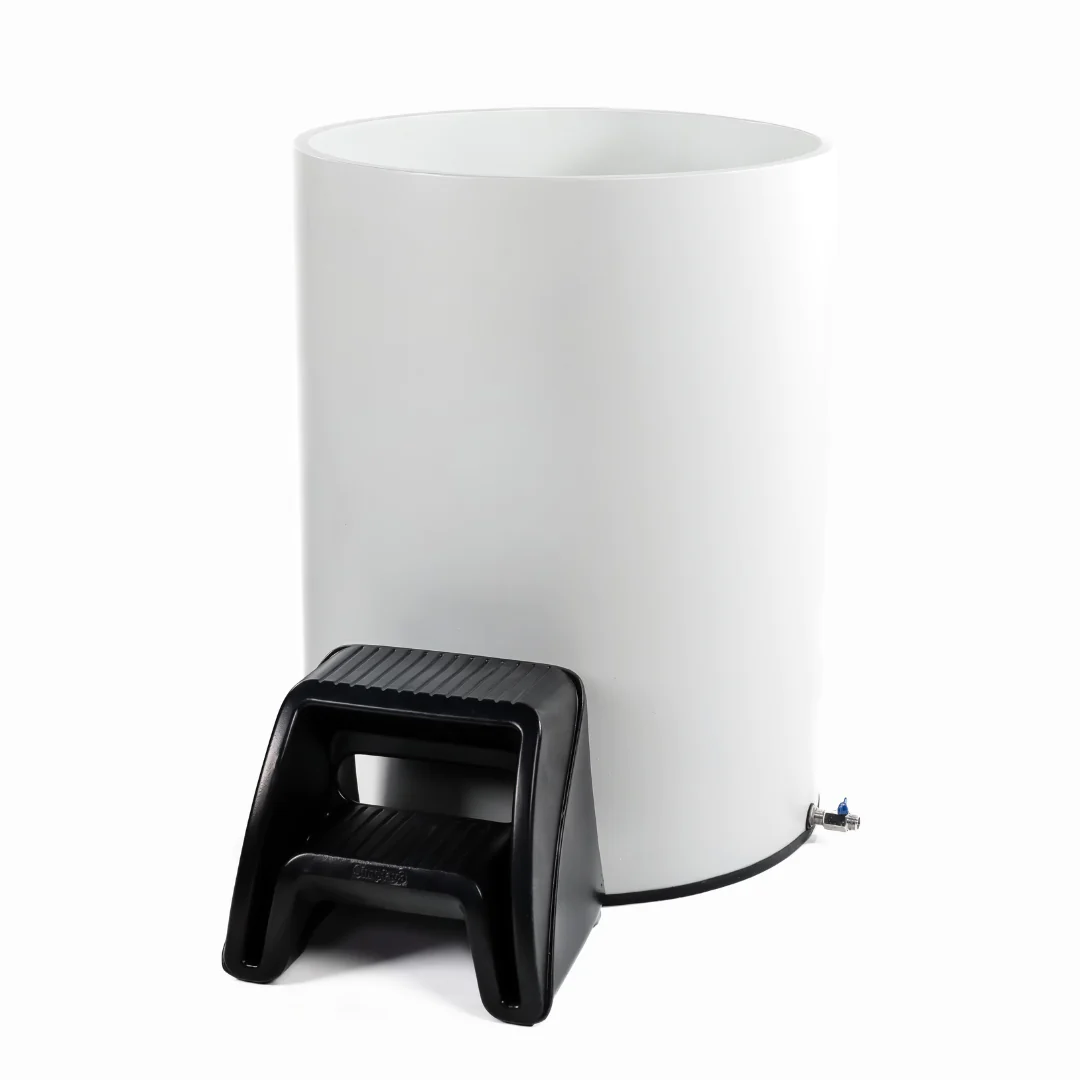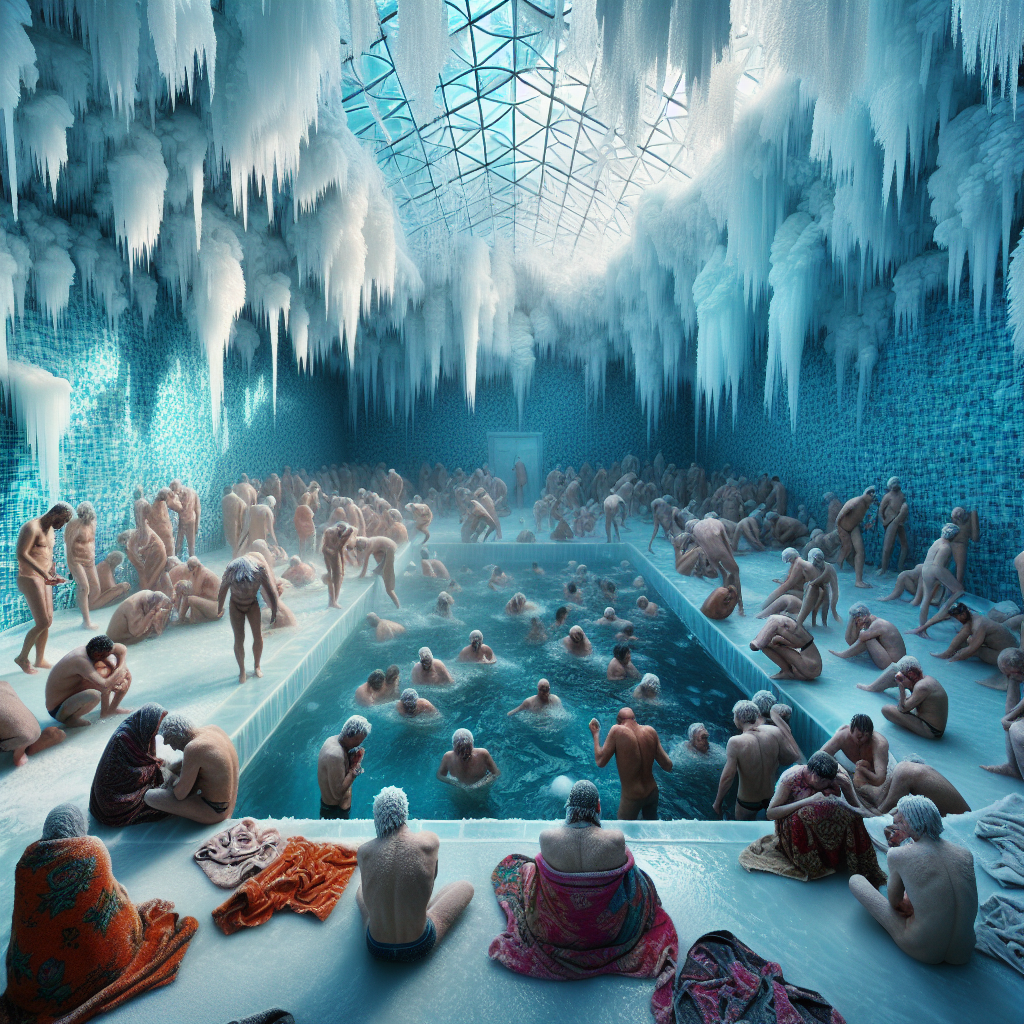Key Takeaways – Is a Cold Plunge Bad for Your Heart
Takeaway 1: Cold plunges can have both positive and negative effects on the body.
Cold water immersion or a cold plunge can trigger the body’s “cold shock” response, causing an increase in breathing, heart rate, and blood pressure. While this may be beneficial for healthy individuals as it provides exercise for the heart, arteries, lungs, and muscles, it can pose risks to those with existing heart conditions. It’s important to consult with a doctor before engaging in such activities if you have any health concerns.Takeaway 2: Cold plunges should be approached cautiously and gradually.
When cooled blood from the extremities returns to the heart after rewarming post-immersion in cold water, there is a potential risk of hypothermia hours later. The American Heart Association advises caution and suggests gradual adaptation to cold water immersion. This means taking small steps and allowing your body to adjust over time rather than diving into extreme cold temperatures immediately.Takeaway 3: Cold plunges may not be suitable for everyone.
In some cases involving patients with chronic heart failure conditions, acute exposure through Finnish sauna practices followed by cold-water immersion has caused changes in blood flow. Additionally, there are risks of frostbite, hypothermia, drowning, and irregular heartbeats for individuals with existing cardiac issues. If you have any doubts about whether cold water activities are safe for you, it is always best to consult your doctor beforehand. Remember that while small doses of cold water exposure may provide physical benefits by stimulating health-promoting hormones, overdoing this practice can lead to cardiovascular events such as abnormal heartbeat patterns (arrhythmias). It’s essential to strike a balance between reaping potential benefits and protecting yourself from potential risks associated with cold plunges or similar activities.”Our #1 Best Recommended Cold Plunge
1. For those who love the chill, check out our popular cold lifestyle blog at The Cold Life. 2. Stay updated and inspired with our latest content on living a cool-paced life by visiting The Cold Life. 3. Discover new ways to enjoy the colder side of life by exploring our archive at The Cold Life.Are you ready to redefine your limits with cold immersion?
Explore the compelling truth behind cold plunging and its remarkable benefits for mind and body.
Dive into the Cold Life Plunge Bundle now to embark on your journey to revitalization and strength. Transform your life today!
Here’s a Youtube Video about Is a Cold Plunge Bad for Your Heart
Is a cold plunge bad for your heart? It depends on your overall health and heart condition.
Exposure to extremely cold water triggers the body’s “cold shock” response, which can increase heart rate and blood pressure.
For individuals with existing heart conditions, this sudden stress on the cardiac system can potentially lead to dangerous complications.
There’s also a risk of hypothermia if your body’s core temperature drops too low after a cold plunge.
In the case of chronic heart failure patients, they may experience adverse effects from cold water immersion.
However, for those who are healthy, regular cold plunges can bring certain health benefits such as improved circulation and increased metabolism.
It’s important to understand the balance between potential dangers and benefits of regular cold plunges – always check with your healthcare provider before you dive in.

The Body’s “Cold Shock” Response to Cold Plunges
When it comes to understanding the effects of cold plunge on heart, let’s start by discussing our body’s unique “cold shock” response. You see, diving into frigid water can trigger quite a reaction in your body. There’s an abrupt uptick in your breathing, heart rate, and blood pressure – this is the so-called “cold shock” response. While this may be harmless for those in good health, it can pose cold plunge risks particularly to those with pre-existing heart conditions.
[h2]Potential Risks of Cold Plunges for Individuals with Heart ConditionsIn any case, it’s crucial to recognize that people with existing cardiac issues need to exercise caution before taking an icy dip. The sudden increase in heartbeat and blood pressure could potentially cause irregular heartbeats or even a life-threatening situation like a heart attack. These are some of the negative effects of icy dips on the heart and they definitely warrant careful consideration.

Download this courtesy guide to optimize your sauna and cold plunge experience and health optimization.
Download the Free Guide TodayDelayed Risks: The Possibility of Hypothermia After a Cold Plunge
All things considered; cold plunges don’t just pose immediate risks either. When cooled blood from your extremities returns back to your heart after rewarming post-immersion, hypothermia could potentially develop hours later. This is yet another reason why understanding the potential harm from cold plunges on the heart is so important.
Effects of Cold Water Immersion on Chronic Heart Failure Patients
By the way, individuals suffering from chronic heart failure may face unique risks as well. Recent research indicates that the hemodynamic alterations or changes in blood flow experienced during a cold plunge can be particularly hazardous for these patients. In particular, studies on Finnish sauna practices have shown that the acute exposure to cold water immersion can trigger these dangerous changes.
[h2]Benefits of Cold Plunges for Healthy IndividualsNow that we’ve discussed the risks, how about some good news? For healthy individuals who love swimming in cold water, there can be potential benefits! These activities can serve as an excellent exercise for the heart, arteries lungs and muscles. So while it’s true that cold water therapy and heart disease could have a negative relationship; for those without cardiac issues, it could be quite beneficial.
[h3]Understanding the Balance: The Potential Dangers and Benefits of Regular Cold PlungesBalancing risk and reward is essential when considering whether to take regular cold plunges. Even in small doses, these activities stimulate hormones that promote overall health. However, overdoing this practice could lead to cardiovascular events like arrhythmias (abnormal heartbeat patterns), underlining again why you should always ask: “Is a cold plunge bad for your heart?”

The thrill of a cold plunge can be an exhilarating and potentially health-boosting strategy. However, it’s essential to understand how to balance the risks and benefits effectively. Take into account factors such as duration, temperature, and personal health status before submerging in the bone-chilling water. A key question that often comes up for enthusiasts is this: Is a 10-minute cold plunge too long?. The answer depends significantly on your general health and tolerance level. It’s equally crucial to determine what temperature is too cold for a cold plunge as it can be detrimental if not managed correctly. Certain temperatures may cause discomfort or potential harm, particularly for those with specific heart conditions. Cold plunges should not be attempted without proper knowledge of their implications. The procedure can seem daunting, especially for beginners who might worry about things like “Is too much cold plunge bad?” or “When is a cold plunge too cold?“. It’s important to note that moderation is key when incorporating this practice into your routine. Immediately switching from high heat to extreme cold is also a popular tactic among wellness enthusiasts. Still, it’s worth investigating what happens when you go from the sauna to the cold plunge to avoid any potential negative health impacts. Furthermore, it’s crucial to consider your personal health conditions before engaging in this practice. Certain groups, such as expectant mothers, may wonder whether cold plunges are safe during pregnancy. Ultimately, understanding the impact of a cold plunge on your body can help you make an informed decision about integrating this invigorating self-care technique into your healthy lifestyle routine.
My Personal Take about Is a Cold Plunge Bad for Your Heart
Hey there, buddy! You know me, I’m George, your go-to expert for everything sauna and cold plunge related. I’ve been noticing a lot of chatter recently about a certain hot topic – and no, it’s not sauna related this time!
‘Is a cold plunge bad for your heart?’ That’s the big question that seems to be on everyone’s lips these days. Now, before you start panicking or second-guessing your wellness routine, let me break this down for you.
- We’ve got the trend itself: The Cold Plunge.
- The concern: Heart Health.
- The burning question: Is one negatively affecting the other?
In any case, after extensive research and personal experience (trust me on this one), I can confidently say that when used responsibly – a cold plunge can actually do wonders for your heart health. It shocks the system in just the right way to get that blood pumping!
You see, taking care of our hearts is important and we need to make informed decisions about our wellness practices. By balancing our hot saunas with regular cold plunges – we might just be doing our hearts a massive favor.
In my upcoming blog post titled ‘Is a Cold Plunge Bad for Your Heart? Unraveling the Truth Behind this Wellness Trend‘, I’ll delve deeper into all things icy-cold-plunging and how it intertwines with our cardiac wellbeing.
Our #1 Best Recommended Cold Plunge for most People
Many wellness enthusiasts have sworn by the benefits of a cold plunge but what about its effects on the heart? Let’s delve into the science and studies behind this wellness phenomenon here. Is cold plunge harmful or beneficial to your heart? Unravel the truth here as we discuss this popular trend.Discover the unparalleled benefits of cold immersion with ColdLife Plunge 1. Unleash your full potential with our innovative cold plunging solution. Explore the transformative effects on your body and mind. Elevate your lifestyle with ColdLife Plunge 1 today!
Frequently Asked Questions about Is a Cold Plunge Bad for Your Heart
Is a cold plunge bad for your heart?
A cold plunge can pose potential risks to people with existing heart conditions, as it can lead to irregular heartbeats or even a life-threatening situation such as a heart attack.
What are the risks associated with cold plunges?
Cold plunges can carry risks such as frostbite, hypothermia, and drowning. There is also a potential for hypothermia hours later when cooled blood recirculates back to the heart after rewarming post-immersion.
Are there any benefits of cold water immersion for healthy individuals?
For healthy individuals without cardiac issues or high blood pressure concerns, activities like swimming in cold water can be beneficial as they provide excellent exercise for the heart, arteries, lungs, and muscles.
What precautions should be taken before engaging in cold water immersion?
The American Heart Association advises caution and suggests gradually adapting to cold water immersion. It is important for individuals with health concerns to consult their doctor before participating in activities like a cold plunge.
Can acute exposure to cold water affect individuals with chronic heart failure conditions?
In some cases involving patients with chronic heart failure conditions, acute exposure through Finnish sauna practices followed by cold-water immersion have been recorded as causing hemodynamic alterations or changes in blood flow.
What are the potential cardiovascular risks of overdoing cold plunges?
If someone overdoes the practice of undertaking a cold plunge or similar activity, there is a risk of cardiovascular events such as arrhythmias (abnormal heartbeat patterns).
Now you know Is a Cold Plunge Bad for Your Heart , but that’s only the beginning of your journey here at Sweat N Chill Zone. If you found this post useful there’s more to learn to get you to the next step of your sauna & cold plunge journey. If you read our next articles you’ll be a step further than most people.
Before you go…
Takeaway 1: Cold plunges can have both positive and negative effects on the body.
Cold water immersion or a cold plunge can trigger the body’s “cold shock” response, causing an increase in breathing, heart rate, and blood pressure. While this may be beneficial for healthy individuals as it provides exercise for the heart, arteries, lungs, and muscles, it can pose risks to those with existing heart conditions. It’s important to consult with a doctor before engaging in such activities if you have any health concerns.Takeaway 2: Cold plunges should be approached cautiously and gradually.
When cooled blood from the extremities returns to the heart after rewarming post-immersion in cold water, there is a potential risk of hypothermia hours later. The American Heart Association advises caution and suggests gradual adaptation to cold water immersion. This means taking small steps and allowing your body to adjust over time rather than diving into extreme cold temperatures immediately.Takeaway 3: Cold plunges may not be suitable for everyone.
In some cases involving patients with chronic heart failure conditions, acute exposure through Finnish sauna practices followed by cold-water immersion has caused changes in blood flow. Additionally, there are risks of frostbite, hypothermia, drowning, and irregular heartbeats for individuals with existing cardiac issues. If you have any doubts about whether cold water activities are safe for you, it is always best to consult your doctor beforehand. Remember that while small doses of cold water exposure may provide physical benefits by stimulating health-promoting hormones, overdoing this practice can lead to cardiovascular events such as abnormal heartbeat patterns (arrhythmias). It’s essential to strike a balance between reaping potential benefits and protecting yourself from potential risks associated with cold plunges or similar activities.” Curious about the optimal temperature for a cold plunge? Read our in-depth guide on how cold is too cold for a cold water plunge. After understanding the right temperature, you can dig deeper into what happens when you take a cold plunge and explore the best ways to perform a cold plunge. If you’re considering owning one, don’t miss our recommendations on the best and most affordable cold plunges in the market.George From Sweat N Chill Zone
George, the passionate founder of Sweat N Chill Zone, is an ardent advocate for holistic wellness through the healing powers of saunas and cold plunges. With a background in health sciences and a fervent dedication to sharing the benefits of thermal therapy, George curates an informative space, offering insights, tips, and expert advice to help individuals optimize their health and well-being through the transformative effects of heat and cold treatments. Through Sweat N Chill Zone, George aims to inspire and educate, fostering a community centered around rejuvenation and vitality.
Download this courtesy guide to optimize your sauna and cold plunge experience and health optimization.
Download the Free Guide Today




